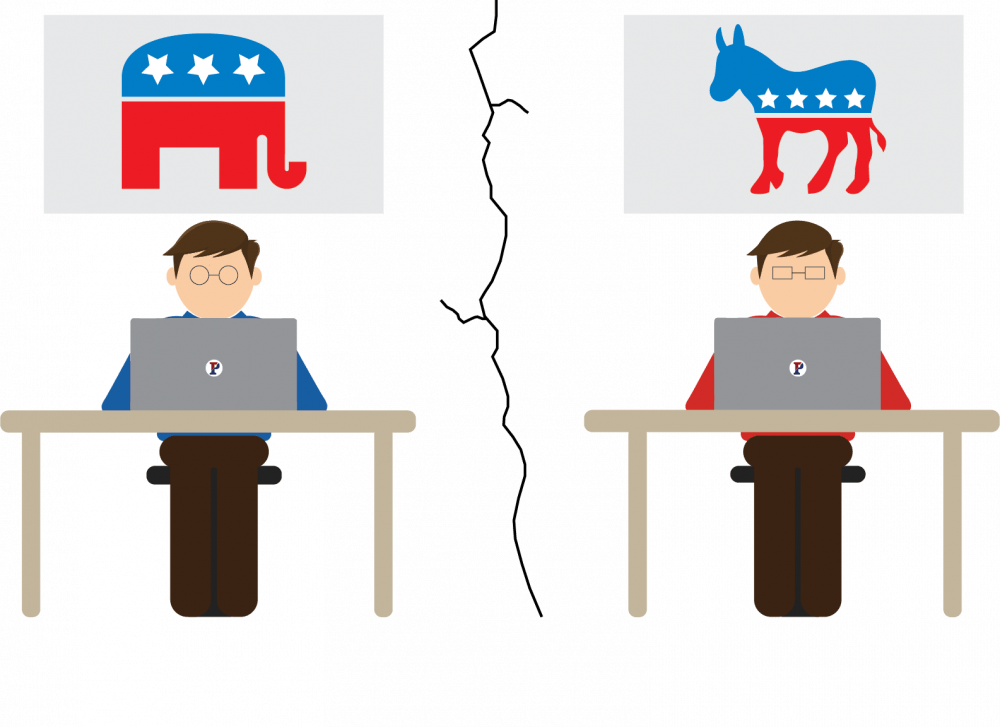As Congress heads back to session after the Thanksgiving break, all eyes will turn toward the Republican tax plan that passed the House of Representatives on Nov. 16. If the tax plan is passed by the Senate, it will introduce a range of sweeping changes to the current tax code.
For political groups on Penn's campus, this bill is the source of heated debate.
Leaders of Penn Democrats and Penn College Republicans harbor a wide range of perspectives on the bill, but diverge on major facets of it.
“This is a tax plan to help GOP donors and really, really, really, really, rich people, while screwing over everyone else in the process,” said College junior Rachel Pomerantz, president of Penn Dems.
Pomerantz said the plan is based on a false premise that corporate taxes are too high, preventing companies from investing in the economy. In reality, she said, the tax plan will hurt the economy nationally and in Philadelphia.
Wharton sophomore and political chair of Penn Dems Dylan Milligan agreed.
“The plan is essentially creating a 1.5 trillion dollar deficit just so rich people can retain more of their money,” he said. “If they really wanted to help the economy, government spending programs would be a much better way of doing that.”
Penn Dems has been sending out emails and Facebook posts urging students to call their representatives to voice complaints about the plan. The club has provided scripts of what to say to representatives as well when to make those calls.
RELATED:
The new Republican tax plan could make a Penn graduate education unattainable for students
New report shows Ivy League schools get more federal funding than some states
There has also been discussion about organizing official phone banks, which function like call centers for volunteers to reach out to voters or constituents. Milligan said Penn Dems might hold a phone bank next week to coincide with the Alabama Senate election.
College and Wharton sophomore Michael Moroz, co-director of College Republicans Editorial Board, said he supports the tax plan and believes it will benefit the economy.
“I think it’s a good plan overall,” Moroz said. “It is especially strong on the corporate side, in terms of making it easier for investments to be deducted and reducing the corporate tax rate.”
However, Moroz said College Republicans is not taking any direct action in support of the bill. The club normally engages in activism during local or state elections, but does not lobby for the passage of specific bills.
Moroz also said he acknowledges the flaws of the proposed plan. He said there are two things in particular that he would change: the child tax credit and the graduate tax.
The expansion of the child tax credit would increase the credit available from $1,000 to $1,600 for any child under the age of 17 for five years. However, that increase would not be available to the poorest families in the United States, pundits explain.
"The child tax credit would alter the existing credit so more upper-middle class families could get it, but would reduce the number of poorer families who receive it," wrote the Huffington Post.
Another key provision in the proposed bill, known as the “graduate tax,” would eliminate the Student Loan Interest Deduction, which would significantly affect graduate students across the nation.

The graduate tax has sparked controversy among students and university workers, as it is set to increase taxes on graduate students by up to 400 percent. The new policy could make a Penn graduate school education unattainable, a concern expressed by students on both sides of the aisle.
“This policy would discourage people from furthering their education and gaining skills that are good for the economy,” Pomerantz said.
While Moroz said this part of the tax bill should be changed, he asserted that there is a need for an overhaul of the university loan process as well.
“I’d prefer to see loans not being subsidized or guaranteed by the federal government,” Moroz said. “I want to see more competition within the university system, so it would be supported to a lesser extent by taxpayer money.”
The Senate could vote on the bill as early as Thursday, and ambiguity still exists over the likelihood of its passage. Pomerantz pointed out that there are “still a number of senators on the fence about the bill,” urging students to call their congressmen and express why this bill would hurt them.
Moroz also acknowledged the bill’s tenuous route to becoming law, while critiquing some GOP senators.
“[The passage of the bill] depends on the extent to which some senators, like John McCain, want to be praised on CNN that night,” Moroz said. “I hope it passes.”



